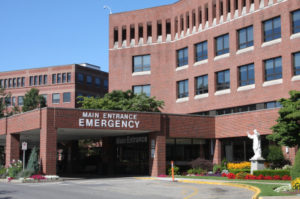Congress to Consider Adding Risk Adjustment to Medicare Readmissions Program
A new bill introduced in Congress last week would require Medicare to consider the socio-economic status of the patients individual hospitals serve as part of its hospital readmissions reduction program.
The Establishing Beneficiary Equity in the Hospital Readmissions Program Act of 2015 was introduced as S. 688 in the Senate, sponsored by Senators Rob Portman (R-OH) and Joe Manchin (D-WV), and in the House by Representatives Jim Renacci (R-OH) and Eliot Engel (D-NY) as H.R. 1343.
Rep. Renacci introduced a similar measure last year. This year’s version has bipartisan sponsorship in both the House and Senate.
 Since the launch of Medicare’s readmissions reduction program several years ago, a number of studies have suggested that the program is unfair to hospitals that serve especially large numbers of low-income patients. The new proposal seeks to address that unfairness.
Since the launch of Medicare’s readmissions reduction program several years ago, a number of studies have suggested that the program is unfair to hospitals that serve especially large numbers of low-income patients. The new proposal seeks to address that unfairness.
Pennsylvania’s safety-net hospitals serve especially large numbers of low-income patients and have been especially vulnerable to the readmissions reduction program’s penalties.
To learn more about this proposal, see this news release announcing the bill. Find the bill itself here.





